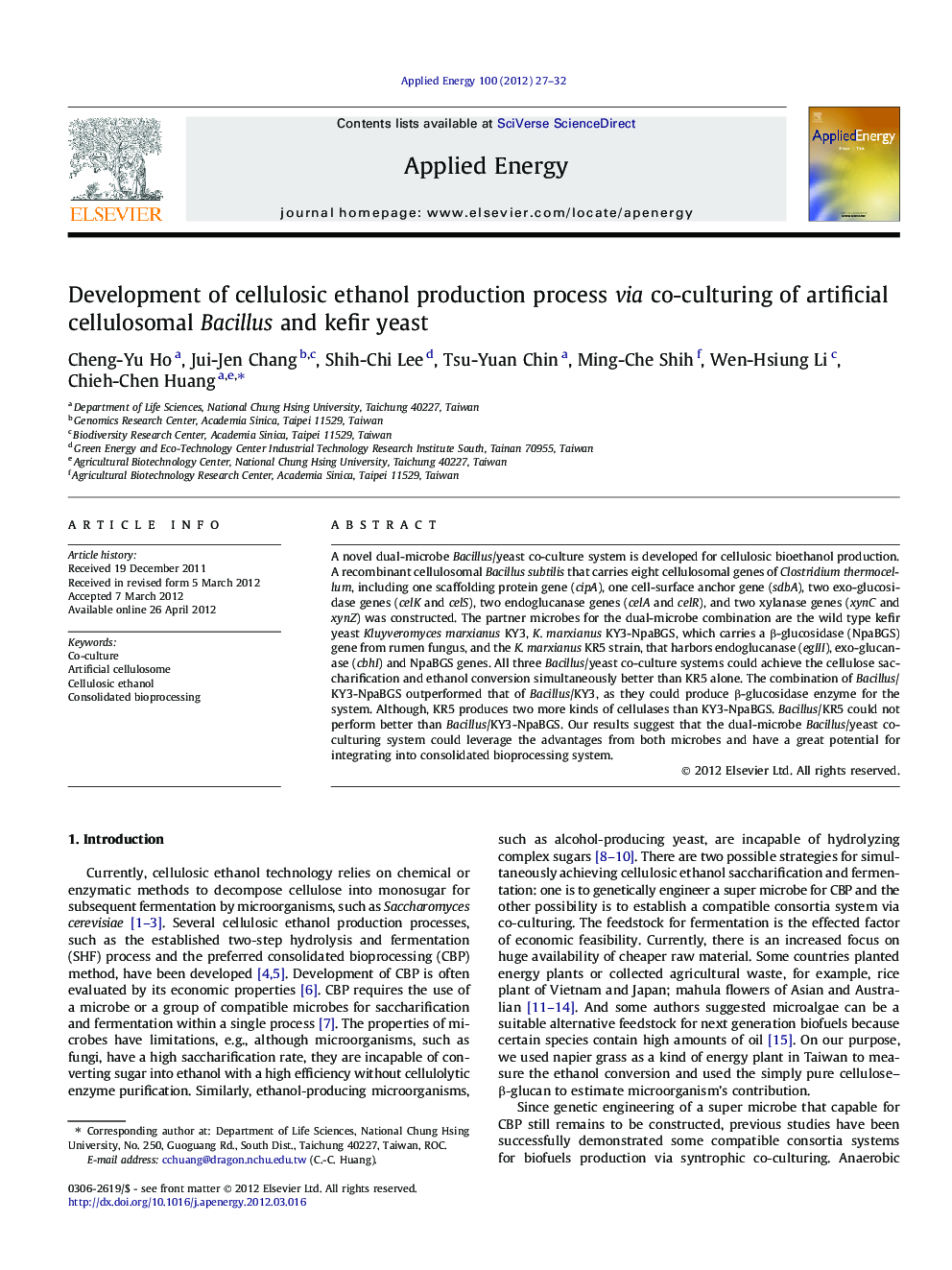| Article ID | Journal | Published Year | Pages | File Type |
|---|---|---|---|---|
| 243143 | Applied Energy | 2012 | 6 Pages |
A novel dual-microbe Bacillus/yeast co-culture system is developed for cellulosic bioethanol production. A recombinant cellulosomal Bacillus subtilis that carries eight cellulosomal genes of Clostridium thermocellum, including one scaffolding protein gene (cipA), one cell-surface anchor gene (sdbA), two exo-glucosidase genes (celK and celS), two endoglucanase genes (celA and celR), and two xylanase genes (xynC and xynZ) was constructed. The partner microbes for the dual-microbe combination are the wild type kefir yeast Kluyveromyces marxianus KY3, K. marxianus KY3-NpaBGS, which carries a β-glucosidase (NpaBGS) gene from rumen fungus, and the K. marxianus KR5 strain, that harbors endoglucanase (egIII), exo-glucanase (cbhI) and NpaBGS genes. All three Bacillus/yeast co-culture systems could achieve the cellulose saccharification and ethanol conversion simultaneously better than KR5 alone. The combination of Bacillus/KY3-NpaBGS outperformed that of Bacillus/KY3, as they could produce β-glucosidase enzyme for the system. Although, KR5 produces two more kinds of cellulases than KY3-NpaBGS. Bacillus/KR5 could not perform better than Bacillus/KY3-NpaBGS. Our results suggest that the dual-microbe Bacillus/yeast co-culturing system could leverage the advantages from both microbes and have a great potential for integrating into consolidated bioprocessing system.
► The transgenic strains KY3-NpaBGS and KR5 was used for ethanol production. ► The recombinant cellulosomal Bacillus subtilis was employed as the cellulolytic partner. ► The co-culture system could convert cellulose into ethanol as expected. ► The platform has great potential for developing a CBP cellulosic ethanol production.
